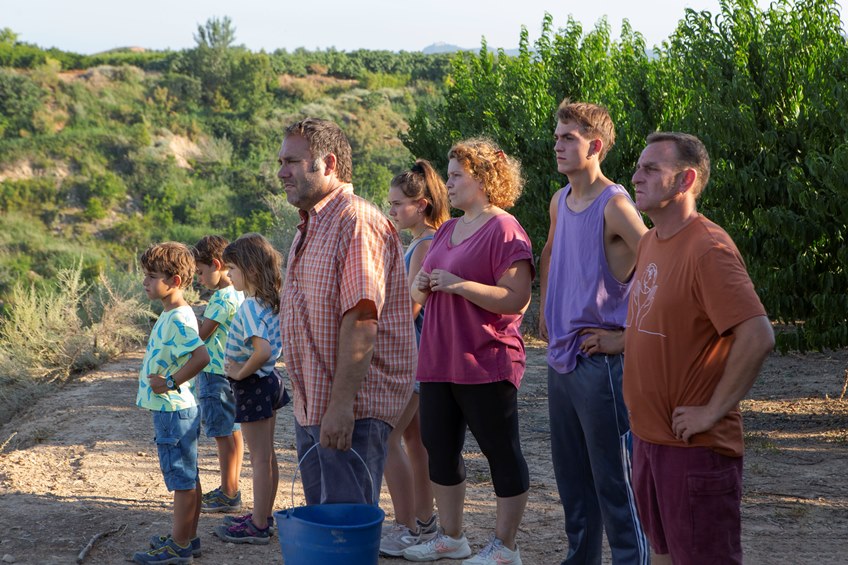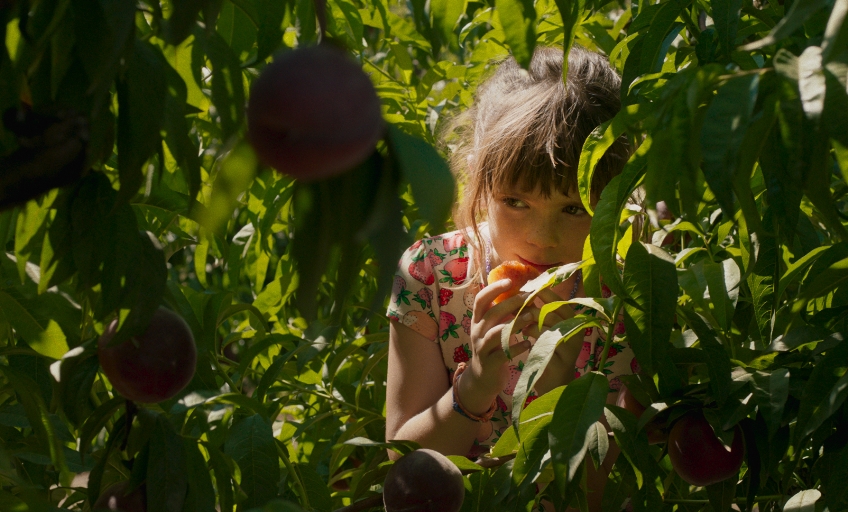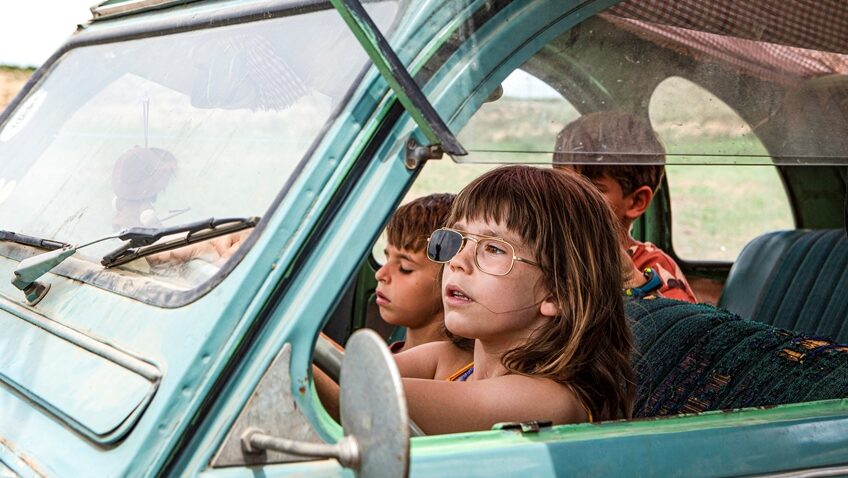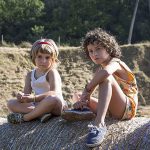Joyce Glasser reviews Alcarràs (January 6, 2023) Cert. 15, 120 mins.
Carla Simón’s first feature, Summer 1993 was autobiographical, observing a lonely orphan struggling to adapt to rural life with her aunt, uncle and toddler cousin. It favoured atmospheric, sun-drenched scenes to plot and narrative, featured non-professional actors and coaxed strong performances from them, without relying on sentimentality. The film was acclaimed and Alcarràs is forged of the same mould.
In Alcarràs, which Simón scripted with Armau Vilaró, it is not a young child, but the viewer who is dropped into this rural life in the midst of the close-knit, though often feuding family, facing the loss of their farm to industrialisation. For half of the film’s two-hour running time, this total immersion in the day-to-day life of a family of peach growers is compelling enough to smooth over the repetition, and the lack of plot and narrative tension.
Alcarràs is the name of a village in which the family we are sent to live with for the summer are at a cross-roads. The head of the family, Quimet (Jordi Pujol Dolcet) learns that his father, Rogelio (Joseph Abad) never received a signed deed for the land they had lived on and harvested for three generations, but which belongs to the wealthy Pinvol family. Rogelio sheltered the wealthy family during the Spanish Civil Wars and thought he had a gentlemen’s agreement with the old man Pinvol. But that agreement was oral, and now his son (Jacob Diarte) has sold the land to a solar panel company. What we are witnessing is the extended family’s final harvest.

That’s it for the plot, but this is no race-against-the-clock adventure drama in which we, along with the family, are counting down the days, sweating out each one and hatching plots and strategies to reverse the injustice.
Sure, there are protests. We here in the UK might be surprised to learn that the British – and the EU – do not consume enough succulent Spanish peaches to make the rich soil, combined with the sunny, mild climate, more valuable for agricultural purposes than industrial. We never learn why this farmland has to be used for solar panels but Quimet participates in a fruit dumping protest with other fed up farmers.
Quimet does react to the news, of course. He lays off the farm workers and relies on his son Roger (Albert Bosch), who is finishing high school, daughter Mariona (Xènia Roset) and brother-in-law Cisco (Carles Cabós) to bring in the crop. But the initial panic gives way to long lyrical passages showing the rhythms of agricultural life, and the rewards as well as the hardships.
There are adorable young cousins running around joyfully enjoying nature unaware that their futures are uncertain. The older family squabble, and at one point Roger angers his father by trying to grow the lucrative marijuana plant. Quimet mistrusts his brother-in-law believing he is selling out.
None of the squabbles seem to last and the family unites for a copious Sunday lunch outside in the summer shade. In another scene, the family frolic in the seldom used swimming pool while in another, they sprawl over the furniture in the living room to shelter from the brutal sun on a languid, endless Sunday afternoon.

Quimet is, of course, worried about the future. Farming is all he has ever known, and he is not interested in solar panels. He loves the land and in this story of cruel gentrification or hard edged capitalism, we cannot but love it, too.
Simón wants us to feel a part of the family; go to the harvest fair with them or to a night club with Roger; pick the fruit with them; load the trucks with baskets with them; walk the land with them, spend a warm afternoon eating Sunday lunch with them; destroying damaged peaches with them, and occasionally worrying with them. The authenticity of the way of life she presents sucks us in and envelopes us until the longueurs set in.
There is no denying that you can almost smell the air and melt into the beautiful sunsets, ready to rise at dawn for the healthy, family-orientated lifestyle. But observing a family’s routine without really getting to know any of them as individuals has its drawbacks. The non-professional actors are terrific – to the extent you could be watching a documentary – not a drama. But they remain remote.
If you prefer Terrence Malick’s Tree of Life over Badlands, you will fall for Alcarràs as did the Berlin Film Festival judges who awarded Simón The Golden Bear. Daniela Cajías atmospheric cinematography, the guileless characters and the sense of pity if not injustice in Simón’s social message make it easy to understand their choice.




